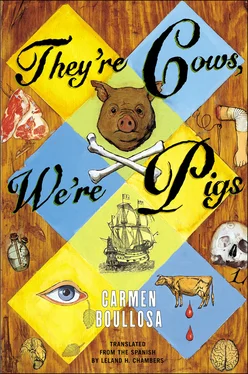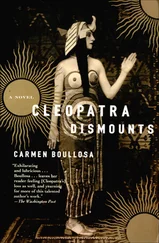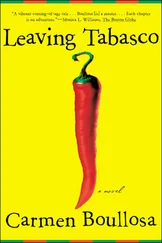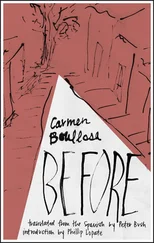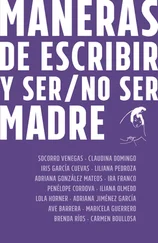
It is easy to guess, without my saying it, the pain and desolation that le Nègre Miel’s death caused me, believing as I did that with him I had lost the capacity to survive. My strength flagged, the debility brought on by my master’s beatings renewed itself, I fell ill. What I was not long in realizing was that it was not unfounded, that pronouncement of le Nègre Miel’s, I am not abandoning you, Smeeks . No, not even in death did he abandon me. The illness brought on by my grief over his disappearance made my master decide to sell me to avoid losing the money he had put out to acquire me, as if he would not recoup it with interest now; having purchased me so cheaply from the Company, he yet sold me only half alive for more, though not nearly as much as I would have brought were I healthy, or at least not sick. My condition was feeble, and certain am I that no one but Pineau would have thrown away his money to acquire me, the noble and generous Pineau, who spent seventy pieces of eight on one who was more dead than alive.
It took me no longer than the time it cost to get well again under the faithful care of my new master to learn that Pineau wanted me to know that he was an enemy of the enslavement of whites, blacks, or matates , considering it a barbaric outrage to traffic in persons as if one were dealing with things, that being opposed as he was to the business of “thine” and “mine,” he deplored doubly that anyone would think himself the owner of any person, that he had paid the Lieutenant General of the island the money agreed upon for me not in order to be Smeeks’s owner but because of le Nègre Miel; and when I asked him why because of le Nègre Miel, he answered that as I was still very young, he should not tell me any more. When I insisted, he said he had spent a decade trying to get le Nègre Miel to share his knowledge with him, that he had offered him, first, his interest, which was no small thing because Pineau was the most highly regarded surgeon on the island and the only one who had been so before, in Europe; and then later on, to exchange knowledge each with the other, to which le Nègre Miel had answered, Forget it, Pineau; I am not a butcher, I do not wish to learn about your scissors and your knife, I do not like to speak with those things . Nor had he offered him gold or money, knowing that besides being useless it would just make le Nègre Miel angry at him, yet he did offer him any object falling into his hands that he thought might appeal to him, like the vessel le Nègre Miel had given me when he died, a piece of fine Bohemian glass showing a hunter with a belt from which dangled his prey: white, brown, and gray rabbits, and amongst them, in the same position, was also a woman looking at him (at the hunter), naked as the rabbits, while the proud, arrogant man clutched a sword in one hand and a gun in the other, yet wearing a gentleman’s dress, with a plumed hat and fine hose, all done in bright colors and bearing a brace of inscriptions, which le Nègre Miel asked me about one day.
“Here, you can see, you can read and write. Read what it says there.”
“I can’t read it.”
“Why can’t you?”
“Because it’s in a language that I scarcely understand.”
“The same happened to me with that thing — when I took it in my hands and heard Pineau’s description I realized it was something I scarcely understood; and why was he carrying the woman there? Because of her the hunter would have to move more slowly.”
In exchange for myself, I thought, though I am not a piece of fine glass from Bohemia, as Pineau certainly is, le Nègre Miel had presented me with all his knowledge, and thus Pineau purchased me and became my salvation because I was le Nègre Miel’s written book. In time I would discover that there was still another sort of link between him and le Nègre Miel and that although perhaps this African wisdom did interest him he was never going to set his hand to it, and that he had acquired me for a different reason than the one he confessed to.
Pineau was not the only one who knew of my connection with le Nègre Miel. As soon as I had recovered from my illness, it being nothing more than grief and debility but would yet have killed me had Pineau not appeared in my life, a messenger arrived with a letter for Pineau. When he had finished reading it, he said, “Let us go, and take all your medicines along,” and we left for Jamaica, an island I was unfamiliar with.
The route to Jamaica seemed exceptionally beautiful to me then, because it was the first time that I saw the course that led away from Tortuga, the Basse Terre beach where Cayonne is situated, the bay formed by the coral barrier, perhaps two hundred meters wide, with the channel winding amongst the submerged coral through which one must enter and depart with great caution and skill, and the color of the sea, which, the more distant we got from the coral reefs surrounding Tortuga, the more prodigiously translucent it became, as it is, I found out later, throughout the greater part of the Caribbean. From a distance the peculiar geography of Tortuga became more evident: mountainous and craggy, with a great deal of exuberant vegetation, steep, rocky terrain, and huge cliffs, about forty kilometers long and eight across through its broadest part, rather small in comparison with the enormous islands around it. We went around Tortuga and Saint-Domingue (only seven kilometers separate them), La Grande Terre that used to be so abundant in wild cattle, which had reproduced prodigally because of the climate, multiplying by many times the stock brought by the first colonists, those wild beasts that had made possible, according to what Pineau gradually explained to me that day, the plentiful hunting by the buccaneers and which the Spanish, in order to rid themselves of the latter, had sought to exterminate and almost managed to do so, leaving so few animals alive that the buccaneers had been pushed into the sea for their food. By killing the animals, the Spanish had created their worst enemies.
“And now there are no cattle left?”
“A few, enough so that here and there a party of clever buccaneers can survive, but it is not easy for the colonists to hunt them, since because of the harassment the animals are forced to take refuge in the forest.”
“Like the wild pigs on Tortuga.”
“Exactly.”
“Pineau, I helped to poison the dogs.”
“You did? Wait till we return to Tortuga to see something that will make you understand the business about the dogs a little better.”
And we changed the subject, without getting back to the dogs. But on our return to Tortuga, he came through with what he had said. Walking in a northerly direction, he took me to an enormous pit, perhaps thirty meters deep and fifty in diameter, called by some the Grottoes of the Plain. We got down into it by uncoiling ropes and taking advantage of the roots and branches of the trees breaching the walls. When we reached the bottom, the pit broadened out to form a gallery with high ceilings covered with stalactites. There lay what Pineau had come to show me: some still with their long hair and the remains of their clothing (skirts for the women, the men only with embroidered belts), dozens of skeletons of Carib Indians, lacking any trace of flesh, Indians who, according to Pineau, had hidden in the caves while fleeing and preferred to remain there and die of hunger and thirst rather than stubbornly to go out and be killed. When the colonists had exterminated the whole of the aboriginal population, they simply let the dogs go loose that they had brought from Europe, to avoid having to feed them, and these then reproduced so intensely that they managed to nearly eliminate the wild pigs in the forests of Tortuga, so that the Governor had some poison brought from France, and as I already knew, since I had done this with my own hands, ordered some horses to be sliced open from end to end and the poison inserted inside them so the dogs would be poisoned by eating them. They died by the hundreds from that stratagem, but not enough to eradicate them altogether, as was D’Ogeron’s intention, and they continued to plague the natural hunting on the island.
Читать дальше
